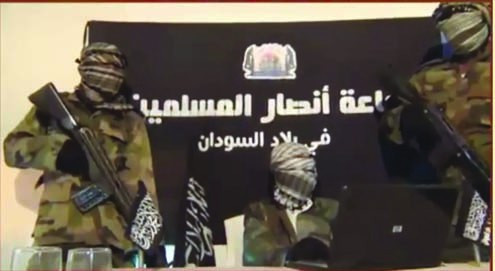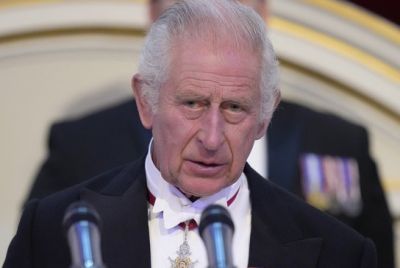Briton among 7 Hostages Killed by Islamist Group in Nigeria

Seven hostages, including one Briton, have been killed by their kidnappers in Nigeria, according to a message posted online by the Islamic extremist group claiming responsibility.
The message, purportedly from Ansaru, a breakaway faction of the Boko Haram terrorist group, included photographs puportedly showing the dead hostages, who were abducted from a construction company compound in February.
The Foreign Office said it was "urgently investigating" the reports.
Those kidnapped included four Lebanese citizens along with a Briton, a Greek and an Italian. They were all employees of Setraco, a Lebanese construction company with an operation in the state of Bauchi.
The message, posted on an Islamic extremist website on Saturday, said Ansaru members killed the hostages after British warplanes were seen in the northern Nigerian city of Bauchi by local journalists. However, the reports referenced in the online statement actually referred to planes which were seen at the international airport in Abuja, Nigeria's capital.
"As a result of this operation, the seven hostages were killed," the group said in the statement, adding that a video of the killings would be posted online.
An image accompanying the post showed a gunman standing over dead bodies.
Ansaru also claimed its decision to kill the hostages was prompted by a statement from Nigerian President Goodluck Jonathan at the time of the abduction, in which he said the government would do anything in its power to free the hostages. The group said security forces had recently arrested an unspecified number of its members.
The Foreign Office said in a statement: "We are aware of reports of the death of a British national in Nigeria, and are urgently investigating. We urge the media not to speculate at this time."
Ansaru previously issued a statement in which it said its fighters kidnapped the workers on 16 February from a construction company's camp at Jama'are, a town about 200 kilometers (125 miles) north of Bauchi, the capital of Bauchi state.
Gunmen attacked a local prison and burned police trucks, before blowing up a fence at the construction company's compound and killing a guard, witnesses and police said.
In an email statement sent to journalists announcing the claim, Ansaru said it has "the custody of seven persons, which include Lebanese and their European counterparts working with Setraco," the Lebanese-owned company targeted in the attack.
The two-paragraph statement in English cited "the transgressions and atrocities done to the religion of Allah ... by the European countries in many places such as Afghanistan and Mali".
Guerilla campaign
In January 2013, Ansaru declared itself a splinter group independent from Boko Haram, the main Islamic terrorist group in northern Nigeria.
Boko Haram, whose name means "Western education is sacrilege," has launched a guerrilla campaign of bombings and shootings across Nigeria's predominantly Muslim north, and is blamed for at least 792 killings last year alone.
On Saturday, a military spokesman said at least two soldiers and 52 Boko Haram fighters were killed during fighting in the city of Maiduguri, after a visit by the president.
Britain has linked Ansaru to the May 2011 kidnapping of Christopher McManus, who was abducted with Italian Franco Lamolinara from a home in Kebbi state. The men were held for months, before being killed in March 2012 during a failed Nigerian military raid backed by British special forces in Sokoto, in the northwest of Nigeria.
Ansaru previously claimed responsibility for the kidnapping in December of a French national working on a renewable energy project in Nigeria's northern Katsina state. Meanwhile, a group of men claiming to belong to Boko Haram claimed responsibility for the kidnapping of seven French tourists from northern Cameroon in late February.
Analysts say Ansaru has ties to al-Qaeda in the Islamic Maghreb, and that further attacks by Ansaru were likely to target Western interests in Nigeria and neighbouring nations.
Ansaru initially said it carried out the kidnappings in part as a response to the French military intervention in Mali. The French, backed up by Malian soldiers, have been fighting Islamic militants who seized control of northern cities following a coup that toppled the democratically elected government.
© Copyright IBTimes 2025. All rights reserved.





















